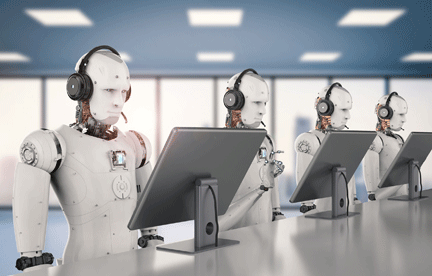The Game-Changing Role of AI in Revolutionizing Customer Support

The world of customer support has been significantly impacted by the rise of artificial intelligence (AI). Gone are the days of long call wait times, unresponsive chatbots, and frustrating self-service portals. Modern AI-powered customer support solutions promise to revolutionize the way businesses interact with their customers, providing faster, more accurate, and personalized experiences.
In this article, we’ll delve into the role of AI in customer support, exploring its benefits, challenges, and the future of this rapidly evolving industry.
The Current State of Customer Support
Traditional customer support systems often rely on human agents to respond to customer queries. While well-intentioned, these systems can be limited by factors such as:
- Limited availability: Human agents are only available during working hours, leaving customers without support during off-peak times.
- Lack of consistency: Human agents may have varying levels of knowledge and training, leading to inconsistent responses and solutions.
- High costs: Employing human agents can be expensive, especially for small businesses or startups.
The Rise of AI-Powered customer support
Artificial intelligence (AI) has emerged as a game-changer in customer support, enabling businesses to provide faster, more accurate, and personalized experiences. AI-powered customer support systems use natural language processing (NLP), machine learning (ML), and deep learning (DL) algorithms to analyze customer queries and provide relevant responses.
Benefits of AI-Powered customer support
The use of AI in customer support offers several benefits, including:
- 24/7 availability: AI-powered chatbots and virtual assistants can operate around the clock, ensuring customers receive support whenever they need it.
- Increased accuracy: AI algorithms can analyze customer queries and provide accurate responses, reducing the need for human intervention.
- Personalization: AI-powered customer support systems can use customer data and behavior to provide personalized experiences, increasing customer satisfaction and loyalty.
- Scalability: AI-powered customer support systems can handle high volumes of customer inquiries, making them ideal for large businesses or services with a high demand for support.
Types of AI-Powered Customer Support

There are several types of AI-powered customer support solutions, including:
- Chatbots: AI-powered chatbots can be integrated into websites, mobile apps, or messaging platforms, providing customers with instant support.
- Virtual assistants: Virtual assistants, such as Amazon’s Alexa or Google Assistant, can be used to provide customers with personalized support and recommendations.
- Speech recognition: Speech recognition technology can be used to analyze customer calls and provide AI-driven responses.
- AI-powered self-service: AI-powered self-service portals can provide customers with quick access to product information, tutorials, and FAQs.
Challenges and Limitations of AI-Powered Customer Support
While AI-powered customer support solutions offer several benefits, there are challenges and limitations to consider:
- Limited contextual understanding: AI algorithms may struggle to understand the context of a customer’s query, leading to inaccurate responses.
- BIAS and sensitivity: AI algorithms can perpetuate biases and be insensitive to customers with diverse backgrounds and perspectives.
- Transparency and accountability: AI-powered customer support systems can lack transparency and accountability, making it difficult to identify and address issues.
- Dependence on quality data: AI-powered customer support systems require high-quality data to function effectively, which can be limited in availability or accuracy.
Best Practices for Implementing AI-Powered Customer Support
To get the most out of AI-powered customer support, businesses should follow these best practices:
- Define clear goals and objectives: Understand the benefits and limitations of AI-powered customer support and set clear goals and objectives.
- Choose the right technology: Select an AI-powered customer support solution that fits your business needs and integrates seamlessly with existing systems.
- Train and test AI models: Ensure AI models are trained and tested with diverse data to improve accuracy and prevent biases.
- Monitor and optimize performance: Continuously monitor AI-powered customer support performance and make adjustments as needed to ensure optimal results.
Future Trends and Innovations in AI-Powered Customer Support
The future of AI-powered customer support holds much promise, with several trends and innovations on the horizon, including:
- Multilingual support: AI-powered customer support systems will soon be able to provide support in multiple languages, breaking language barriers.
- Emotional analysis: AI-powered customer support systems will be able to analyze customer emotions, providing empathetic and personalized support.
- Context-aware support: AI-powered customer support systems will be able to analyze context, providing real-time support and recommendations.
- Integration with IoT devices: AI-powered customer support systems will soon be integrated with IoT devices, providing real-time support and recommendations based on customer behavior and preferences.
In conclusion, AI-powered customer support is revolutionizing the way businesses interact with their customers, providing faster, more accurate, and personalized experiences. By understanding the benefits and limitations of AI-powered customer support, businesses can implement effective solutions that drive customer satisfaction, loyalty, and revenue growth.
Share this article with your network and let’s start a conversation about the future of customer support!


